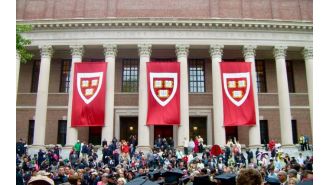Lama Rod Owens aims to establish a new generation of influential individuals through the principles of Buddhism.
Owens went through a process of rejecting and then accepting God, leading to a new understanding of God.

Lama Rod Owens is a Black Buddhist who has had a unique spiritual journey. He acquired his education at the prestigious Harvard School of Divinity, where he blended teachings from Buddhism and Judeo-Christian traditions to nurture what he calls "New Saints" among his students. Growing up, Owens was raised in the Black Baptist and Methodist traditions. However, he eventually left these religions due to their unwelcoming attitudes towards gender and sexuality. He wanted to find a more inclusive and personal religious path that would allow him to have autonomy over his beliefs.
As reported by the Associated Press, Owens credits much of his spirituality to his mother, Rev. Wendy Owens, who is a United Methodist minister. Her path and teachings inspired Owens to embark on his own spiritual journey. He shared, "Like a lot of Black women, she embodied wisdom and resiliency and vision. She taught me how to work and how to change because I saw her changing."
After graduating from Berry College, a non-denominational Christian school, Owens became even more committed to serving others. He told the AP that service had become his new religion. He trained as an advocate for sexual assault survivors and volunteered for various projects focused on issues such as HIV/AIDS education, homelessness, teenage pregnancy, and substance abuse. "Even though I wasn't following the same theology anymore, I was still following the path of Jesus by feeding and sheltering people," shared Owens.
It was during his time at Haley House, a community organization in Boston, that Owens encountered people from various faiths, including Christianity, Buddhism, Wicca, Islam, and Monasticism. One of his friends gave him a copy of "Cave in the Snow" by Vicki McKenzie, which tells the story of Tibetan Buddhist nun Jetsunma Tenzin Palmo's search for enlightenment. This book sparked Owens' interest in Buddhism and set him on his spiritual path.
Owens believes that true compassion involves acknowledging suffering and making a solemn oath to alleviate it. He shared this sentiment on his Twitter account, @LamaRod1, on April 17, 2024, and also retweeted it on February 17, 2024.
When asked about his transition from Christianity to Buddhism, Owens said, "When I started exploring Buddhism, I never thought, 'Oh, Black people don't do this, or maybe this is in conflict with my Christian upbringing.' What I thought was, 'Here's something that can help me to suffer less.' I was only interested in how to reduce harm against myself and others."
During his time at Harvard Divinity School, Owens encountered a member of the Satanist faith. According to La Carmina, author of the "Little Book of Satanism," most Satanists are non-theists. She explained, "There are many different kinds of Satanists, but most don't actually believe in Satan and don't worship him as either a god or a force of evil. For the most part, Satanists are non-theists and view Satanism as a personal liberation from traditional theistic beliefs. We value nonconformity and revolt against the ideas of superstition and arbitrary authority. Modern Satanists are nonviolent and interested in the pursuit of reason, justice, and truth."
Owens' image of God has evolved over time. He went from "breaking up with God" in college to reconciling with God and refining his understanding of God. He shared with the AP, "God isn't some old man sitting on a throne in the clouds, who's, like, very temperamental. God is space and emptiness and energy. God is always this experience, inviting us back through our most divine, sacred souls. God is love."
Owens draws inspiration from a diverse group of figures such as James Baldwin, Harriet Tubman, Alvin Ailey, Andre Leon Talley, Toni Morrison, Tony Kushner, and even Beyoncé. He believes that his wide range of influences allows him to be fluid in his thoughts and ideas. He expressed, "I want people to feel the same way when they experience something that I talk about or write about. That's part of the work of an artist - to help us feel and not be afraid to feel. To inspire us to dream differently and to shake us out of our rigidity and become more fluid."
Owens' work and beliefs have not gone unnoticed. He was awarded the Religion Award for his thoughts on the intersection of faith and social justice. He firmly believes that faith is crucial in making Black lives matter. As he continues on his spiritual journey, Owens hopes to inspire others to be more open-minded and fluid in their beliefs.
1 Views









